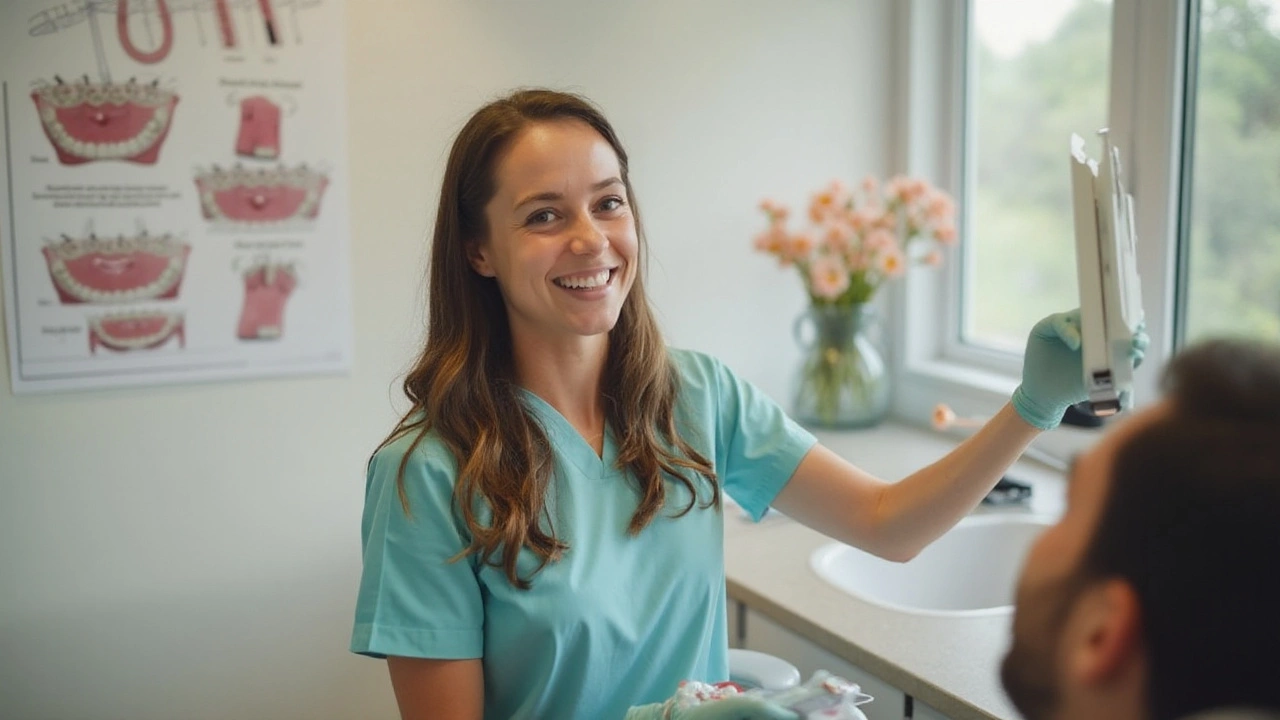UK Dental Care: What You Need to Know Today
If you’re living in the UK or planning a visit, dental care can feel like a maze. The good news? It’s not as confusing as it looks once you break it down. Below you’ll find the basics of NHS dental, what private clinics offer, real‑world prices, and practical tips to keep your mouth healthy without breaking the bank.
How NHS Dental Works
The National Health Service provides dental treatment at subsidised rates. You’ll be placed in one of three charge bands – Band 1 covers exams, clean‑ups and simple fillings; Band 2 adds extra work like root canals; Band 3 includes crowns, dentures and bridges. Prices are fixed nationwide, so you know exactly what you’ll pay before you sit in the chair.
To access NHS care you need to register with a local practice that’s taking new patients. Many areas have long waiting lists, especially for routine check‑ups, so it helps to book early or look for practices a few miles outside the city centre. Some dentists also offer a “private‑within‑NHS” option, letting you get a quicker appointment for a modest extra fee.
Private Dentistry: When and Why People Choose It
Private clinics give you more flexibility – you can often get an appointment the same day, choose a specific dentist, and enjoy a wider range of cosmetic services. The trade‑off is higher cost. A simple filling might run £70‑£120, while a crown can cost £400‑£800 depending on the material.
Many patients opt for private care for dental implants. In the UK, a single implant averages £2,000‑£2,500, including the surgery and crown. The procedure is safe, but it does carry risks like infection or nerve irritation. If you’re over 70, discuss bone density and healing time with your dentist – age alone isn’t a deal‑breaker, but a thorough assessment is key.
Want to avoid the high price tag? Some clinics bundle multiple implants or offer financing plans with low monthly payments. Always ask about a detailed cost breakdown before you sign any agreement.
Aside from implants, common private services include teeth whitening (£150‑£300), orthodontic aligners (£1,500‑£3,000) and cosmetic veneers (£400‑£600 each). If you’re on a tight budget, consider a dental tourism option – countries like Hungary and Poland provide quality work at a fraction of UK prices, but factor in travel costs and follow‑up care.
Finally, remember that good oral hygiene reduces the need for costly treatments. Brush twice a day, floss daily, and schedule a check‑up at least once a year, whether you’re on the NHS or a private plan.
By understanding how the UK system works, you can pick the right mix of NHS and private care, plan for procedures like implants, and keep your smile healthy without surprise bills.
Dental Implants UK: Do You Have to Go Without Teeth While Waiting?
Worried about having gaps in your smile while waiting for dental implants? Many people think they’ll have to hide their teeth while healing, but that’s rarely the case. Temporary solutions like dentures or bridges can fill the gap until your permanent implant is ready. This article explores what you can expect, which options are available, and what the process looks like in the UK. Find out how you can keep smiling confidently while your implant journey is underway.
UK Dental Care vs. US: Are Brits Really Better Off with Implants?
Curious if UK dental care beats out the US, especially when it comes to dental implants? We'll break down how the UK stacks up against the US, digging into costs, quality, and access. Get a real sense of what it's like to book treatment on both sides of the pond. You'll see how the NHS impacts British smiles, and if going private in the UK is worth it. This guide gives honest advice for anyone considering dental implants abroad.
Affordable Dental Implant Options in the UK: The Best Solutions for Missing Teeth
Finding an affordable solution for missing teeth can be a challenge, but there are several options available in the UK that cater to different budgets. From traditional dentures to advanced dental implants, the array of choices ensures everyone can find a suitable method to restore their smile. Dental tourism is also becoming a popular option for those seeking cost-effective treatment. This article explores the most affordable ways to replace missing teeth, highlighting their benefits and drawbacks.



